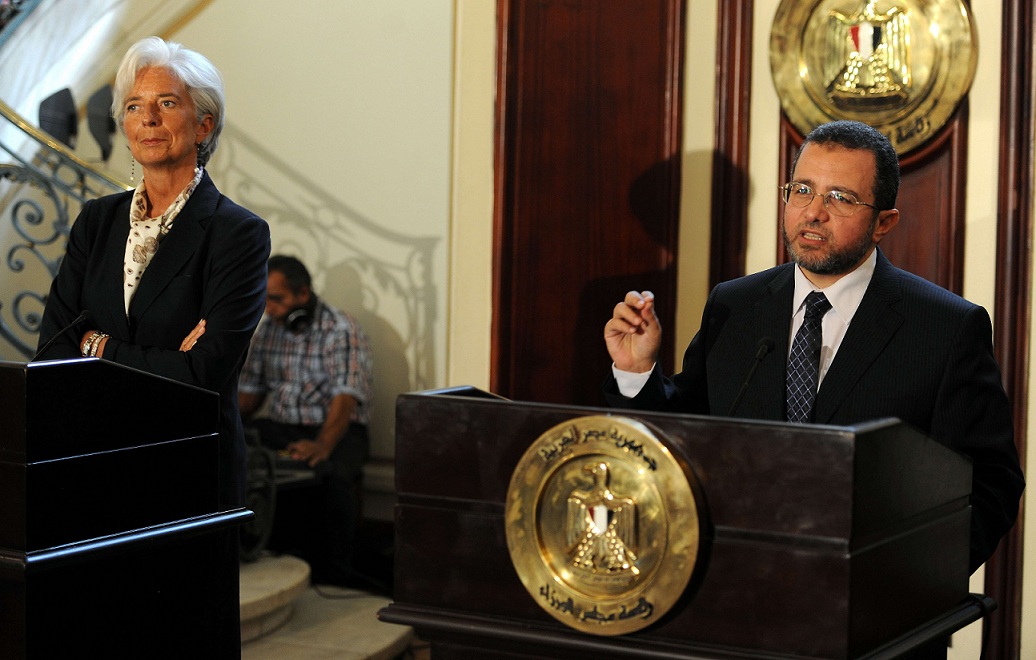CAIRO: Despite its young age in comparison to other, more established parties, the liberal El-Ghad (Tomorrow) party, founded by the 42-year-old Ayman Nour in October 2004, was one of the key players in the political movement that Egypt witnessed in the last couple of years.
The party had its ups and downs and now faces uncertainty about its future with its founder behind bars for five years, convicted of forging signatures necessary to establish the party. Egyptian law requires at least 50 powers of attorney to apply for a party, which the Parties Affairs Committee has the right to approve or decline. Nour presented 2005 of them, with the charge being that he forged 1435 of them.
Nour, at the time a Member of Parliament in his second term, was one of the strongest opposition figures to President Hosni Mubarak. Nour came in second in the first Egyptian presidential elections in 2005 with 7 percent of the votes, while Mubarak won his sixth consecutive term with 88.6 percent. The elections were held after the 76th article of the constitution was amended to allow multi-candidate presidential elections in place of a yes or no referendum on one candidate.
The attorney general Maher Abdul Wahid and the Egyptian government insist that the investigation and trial were entirely independent and not politically oriented in any way, but Nour s Egyptian supporters and sympathizers take another point of view, organizing demonstrations and public movements demanding the release of Nour, claiming the case was because of his opposition to the ruling National Democratic Party. With external pressure growing, a great deal of it coming from the U.S., Nour was released on bail, only to be rearrested and convicted in the trial after the presidential and parliamentary elections.
Nour s appeal was rejected, upholding the five-year sentence, where the only possibility for him to be released is a presidential pardon.
Egyptian parties, including El-Ghad, face a number of challenges in the Egyptian political scene. One of these difficulties is working under the 25-year-old state of emergency, which gives the president military powers and prohibits the holding of demonstrations outside party headquarters. Each time Egyptians hold a demonstration, the Egyptian security has the right to arrest them, leading most Egyptians to be fearful of becoming involved in politics, even those who want to join El-Ghad. The result is a party that holds its activities and spread its ideas inside their own headquarters, unable to attract Egyptians in campuses or out on the streets. The El-Ghad weekly newspaper is the only tool that the party has to reach the people.
El-Ghad needs Ayman Nour – unfortunately, I discovered during time in jail that Nour s role was central for the party and that the party can t operate without him, says Ahmed Maher, a 25-year-old engineer and El-Ghad member. He was detained for 60 days for participating in a sit-in in front of the judges club in support of the judges demanding judicial autonomy.
Sadly the opposition still has problems and we still fight each other instead of fighting the regime, says Maher. One of the things I felt in jail was that Nour s suffering in jail was far more than what the media described it. I decided I m staying and that I won t back down and will try to make things right from within the party.
El-Ghad party and its former chairman Ayman Nour are both young, and successfully stood out from the rest of the parties, anticipated by many to be the fresh blood needed to reinvigorate Egyptian politics. Having a young, charismatic chairman, the party appealed to young and older Egyptians, who were used to having an old and wise president, and at the same time were worried that Nour wouldn t have the experience needed.
He represented a new generation in Egyptian politics, where the rest of the chairmen of other opposition political parties ages vary from 65 to 85. The new image that El-Ghad has created is because of Nour, says Amr Shobaki, from the Al Ahram Center for Political and Strategic Studies. I m worried about the possibility that the state intends that they won t allow new generations of Liberals, Nasserists or Islamists to surface.
But with Nour now behind bars, the El-Ghad party is facing a real test as to whether Egyptians are able to organize themselves in a civil party with the leader gone. A new chairman was elected in a general assembly, but Nour is still viewed as the leader of the party.
The only well organized group now is the Muslim Brotherhood, founded in 1928, about 10 years after the liberal Al-Wafd party, the first party to be founded in Egypt in 1919.
The state cracks down on brotherhood members as they do on civil parties, but with religious motivation in an increasingly religious society with no real alternatives, they gained support, an aspect that the El-Ghad party lacks.
El-Ghad is suffering from a number of problems; the main problem is that it’s a party that centered around the character of Ayman Nour. The party s existence was linked to the presence of Nour, explains Shobaki. The chances that El-Ghad will rise again without the presence of Nour are nil. The party will exist but will be weak – it might rise again if Nour was released, but I doubt that this would happen now.
With perspectives varying about El-Ghad s background and future, it was still an active player in an important part of Egyptian political life, adding diversity and debate to Egyptian politics.

